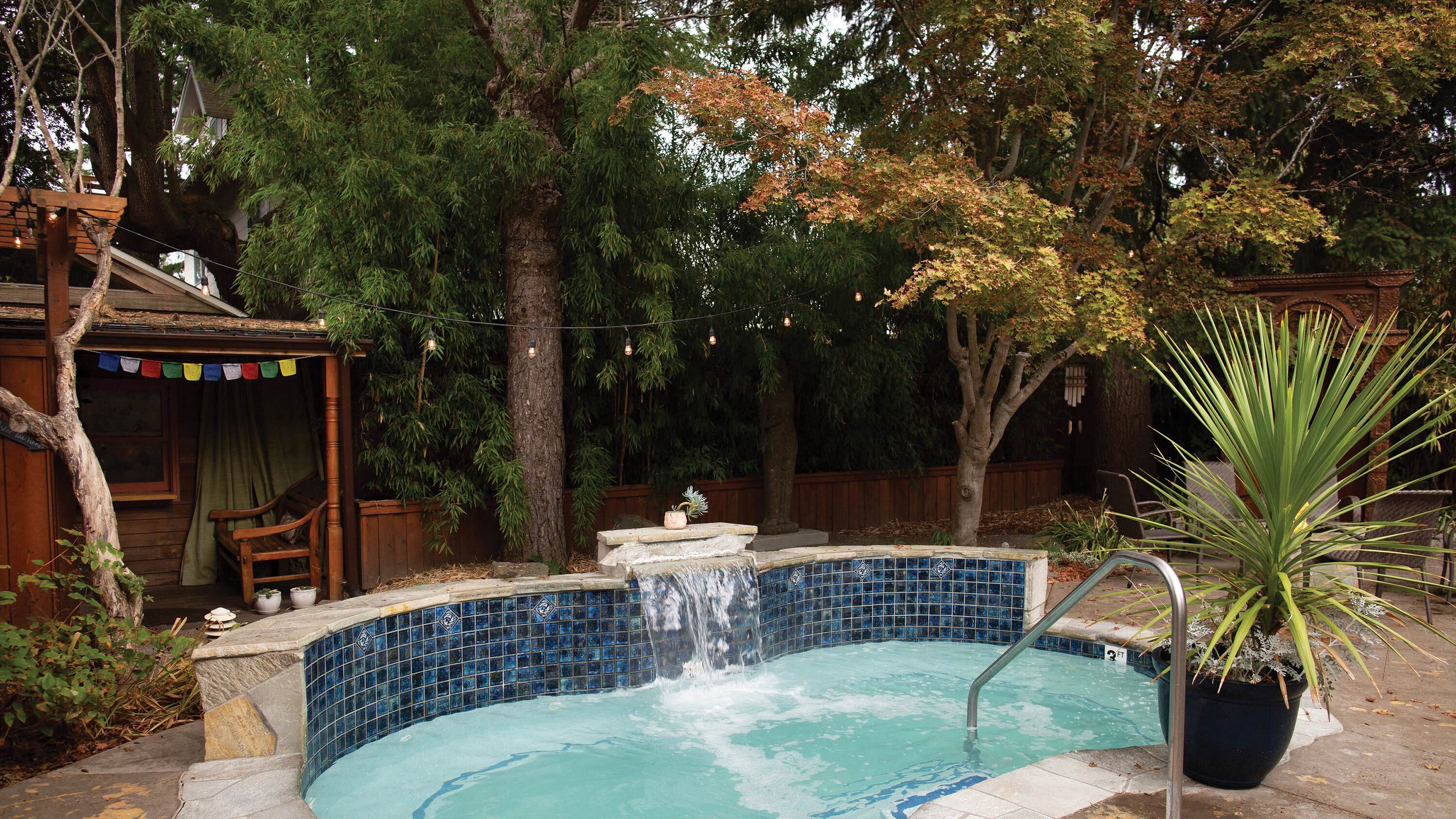Portland City Council has bailed the Everett House Community Healing Center out of hot water—to a degree.
The urban hot tubs on a residential block of Northeast Portland were imperiled in January when a city hearings officer said the healing center needed to provide on-site parking and scale back its programming in order to stay open.
On March 20, the City Council partially reversed the hearings officer's decision. It ruled that the the alternative-medicine center can operate without providing a parking lot, but it can't keep offering acupuncture or chiropractic services.
"It seems the Everett House has been operating under an 'ask forgiveness, not permission' basis for a long time," said Commissioner Chloe Eudaly. "I understand why chiropractic and acupuncture would be reasonable to have at this facility, but those are medical services and need to be treated differently."
The central issue in the case was whether the city's on-street parking requirements are being met by the Everett House—after its longtime parking lot was turned into an apartment building with no parking. But really, it was about a decadeslong feud between the Everett House and neighbors who felt like the business was overtaking the neighborhood.
Related: A beloved urban hot tub oasis is imperiled—because its parking lot is being turned into apartments.
Supporters of the Everett House argued that the business offers valuable health services for the community.
"The Everett House is a quiet place to rest and bring life back into balance. This cannot be reproduced in a commercial setting," said Elliott Mantell, the spa's operator. "It is abundantly clear that many people have come to depend on the Everett House as their sanctuary."
Other supporters added that the Everett House is environmentally friendly.
"We don't even need to have our own hot tub at home," said Bob Czimbal, a motivational speaker and longtime member of the healing center. "Which I think is very ecological."
Opponents of the Everett House said it's a for-profit medical office building operating under the guise of a nonprofit.
"One of my neighbors called in a noise complaint every day last summer," Fred King, the respondent in the case, said. "I don't understand how this could possibly be a nonprofit community center."
(Mantell's lawyer disputed King's claim. She said that Mantell filed a FOIA and found only one noise complaint against the facility.)
Another neighbor who opposed the appeal, Leviticus Cole, said that's is frightening to have so much traffic on a street when he has two young kids.
"The parking issue is not a parking issue, it's a traffic issue," Cole said. "And the ebb and flow of people who come from the building creates a safety concern."
The atmosphere in the council chambers was placid. But when neighbors who were fed up by the Everett House testified to the council about their qualms with the business operating in the middle of their neighborhood, they received a thundering chorus of thumbs down, behind their backs, while those testifying in favor of the Everett House were greeted with a round of thumbs up when they walked back to their seats after testifying.
Mayor Ted Wheeler joined Commissioners Nick Fish and Eudaly in voting for the hot tubs. Commissioner Amanda Fritz was the sole dissenter.
"I think there's a hugely different impact on the neighborhood than was envisioned in 1982," Fritz said. "I think it's a mistake to allow it to continue and expand. No."
A final vote is scheduled for May 1, giving the City Council and its attorneys time to review the Everett House's responses.

